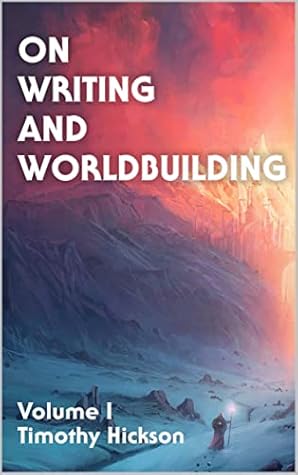More on this book
Community
Kindle Notes & Highlights
purport
an author owes no obligation in their work other than to write the story they wish to read.
feature of a prologue is its distance from the main narrative.
Geography: it takes place in a vastly different setting to the majority of the narrative, like in the 2018 Netflix series Altered Carbon. In this section on prologues, we will be discussing hooks, necessity, backstory, exposition, the importance of tone, mood, and theme in a prologue, and length.
When using this double-hook structure, it’s important to have each hook target two different questions in the narrative.
Ensure your prologue targets a different question to that of the first chapter.
The prologue-hook should be something that cannot be effectively communicated early in the main narrative because the main characters cannot know about it
but is still crucial to the development of the tension in the narrative.
But most of the time, backstory is better given as a flashback later in the story, because that event in
their past does not help the reader understand the beginning of the novel.
What makes a prologue necessary is that it introduces an element fundamental to understanding the novel from that point forward in a far more impactful way than exposition would.
Collectively, they create this mysterious, half-finished puzzle for the reader where they are more focused on the questions they have than the exposition they have been given.
Summary Firstly, have hooks that target two different points of tension in the narrative in the prologue and first chapter. If used, that hook should be something unable to be effectively communicated through the experiences of the main characters, but fundamental to the reader’s expectations and experience of the story going forward. Secondly, a prologue must be necessary. Backstory-prologues are generally better if they only provide backstory insofar as it helps the reader understand the very first chapter. Thirdly, avoid prologues that are
...more
The introduction of a problem. The exploration of that problem. The resolution of the problem.
“The best thing you can do for your book is to make sure the first chapter adequately represents the tone of the rest of the chapters, so the book as a whole seems cohesive.”
Though this part is not for discussing tone, we can touch on it. It can be built in any number of ways, including: Imagery: focusing on how the wind and rain is tearing the leaves off trees establishes
a pessimistic tone, while focusing on how a single beautiful flower survives the storm establishes an optimistic tone. Stakes of the opening problem: in the opening scene of Shakespeare’s King Lear, the problem Cordelia faces is the need to prove how much she loves her father, the king. Everything in her inheritance is at stake here, establishing a more serious tone to the story as one of Shakespeare’s tragedies.
Most of the time, the hook does one of two things: It causes the reader to ask a question that they wish to know more about. It sets up a controversial statement that they may or may not agree with.
Summary Firstly, using the mini-three-act structure gives you the opportunity to introduce your setting and characters in interesting ways as you show what kind of problems arise in your world and how your character approaches them. Secondly, effective opening lines tend to be succinct and not superfluous. To do this, introduce only one central element of your story that makes it interesting: the conflict, the setting, the theme, or otherwise. However, don’t exaggerate these ideas to appear extraordinary and interesting for effect only to reveal them as ordinary
...more


